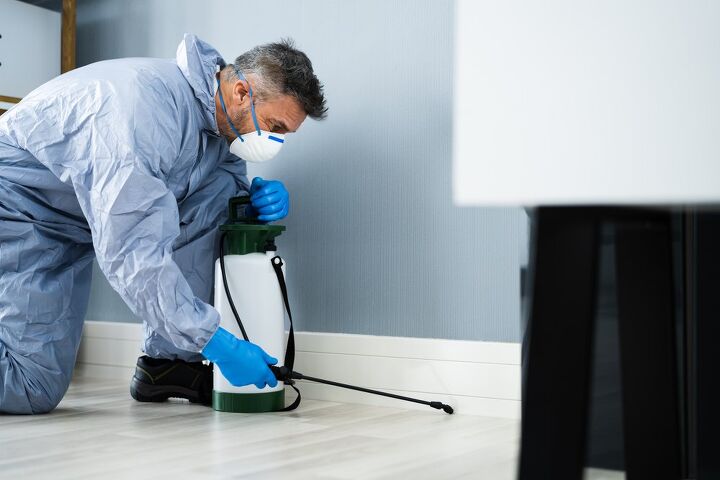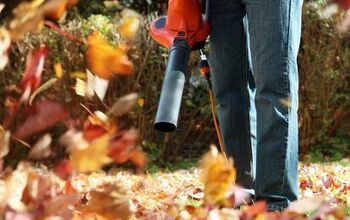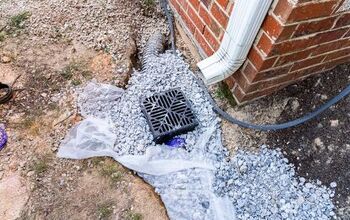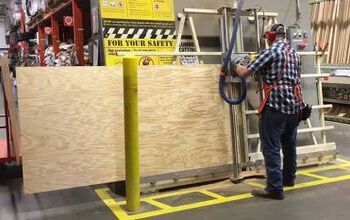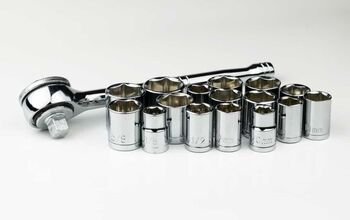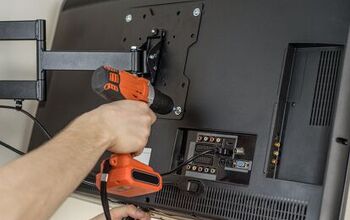Pest Control Vs. Exterminator: What Are The Major Differences?

Whether you’re a renter, homeowner, or business owner, pests are a nuisance that you must eliminate. Pests can include anything from bed bugs to snakes to rodents and everything in between. The two most common ways of getting rid of pests are either by doing it yourself or by hiring a professional. If you opt for the professional method, you’ll likely hire a pest control company or an exterminator.
Choosing between pest control versus an exterminator is tricky. While both professionals have the ultimate goal of eradicating pests and infestations, they go about it differently. Exterminators often take an aggressive approach and use harsher chemicals that result in quick extermination. Pest controllers prefer to use gentler ways to get rid of pests and focus on preventing future infestations.
No matter which professional you choose, the end goal is always to get the pests out of your home. The main difference between the two is how fast they do it and how they do it. This article aims to give you a clearcut idea about who you should choose for your next pest infestation.
What’s the Difference Between Pest Control and an Exterminator?
The best way to determine the difference between a pest controller and an exterminator is to look at each professional’s methods and steps.
What Does an Exterminator do?
All you have to do is look at the title of an exterminator to know what they do. Exterminators are pest-killing professionals whose only goal is to eradicate pests from your home and property. They utilize a search and destroy mentality rather than pest controllers and often use harsher chemicals.
Exterminators don’t really care where pests came from or what happens after they leave. Their only goal is to kill the pests they find and use whatever means necessary. The fact that exterminators sometimes use harsher chemicals than what’s needed is why people question their methods.
Yes, getting rid of pests is extremely important. However, it’s also important to consider what the chemicals they use will do to the environment, your home, and you and your family. Exterminators often require you to be absent from your home while conducting whole-house fumigations and treatments. This is another drawback to using an exterminator.
What Does Pest Control do?
Pest control takes a more subtle approach to getting rid of infestations. Yes, they sometimes use chemicals and similar methods to kill pests, but they focus on where the pests came from and how to prevent them from re-entering your home. Their goal is to control and prevent the spread of pests and get to the root of your pest problem.
Pest control professionals (PCPs) focus on the long-term prevention of pests rather than short-term eradication. They also focus on using environmentally-friendly ways of getting rid of pests rather than simply covering your home with toxic chemicals.
Where exterminators often use the same method regardless of the pest, PCPs alter their methods according to the pest. They take a more scientific and deliberate approach to pest control than exterminators.
What Methods Does Pest Control Use?
Spraying Pesticides
PCPs do utilize pesticides and chemicals, but only when they have to. If there’s another way to get rid of pests, a PCP will find it. However, when necessary, PCPs use pyrethrins and pyrethroids, including Permethrin, Fipronil, Piperonyl Butoxide, and several other chemicals. Pest controllers are less likely to fumigate your entire house than exterminators are.
Organic Repellants
PCPs are also open to using organic repellents to drive pests out of your home if you don’t like the idea of having your house filled with chemicals. These types of repellents include green and eco-friendly options and pet and kid-friendly options so that you don’t have to worry about a loved one getting into the repellent.
Bait Traps
If you are struggling with pests in the form of mice or other rodents, PCPs will also utilize baits and traps to catch them. Baits and traps are extremely effective at getting rid of mice and rats and are effective even after the PCP has left your home. PCPs use larger traps designed to capture the animal rather than kill them outright for larger animals and rodents. Your PCP will then transfer the animal to an alternative location and release or put down the pest.
Preventative Treatments
One of the biggest differences between pest control and exterminators is that PCPs focus on preventative treatment as much as they do on extermination. After all, if pests can’t get into your home, you and the potential pests can live in peace in your separate domains.
What Methods Do Exterminators Use?
Physical Methods
Exterminators will use physical methods to eradicate the pests for larger rodents and animals. Traps and bait traps are effective at getting rid of mice and rats, while larger traps are utilized for bigger rodents. Physical control also involves removing nests in and around your home, such as bird nests, bat nests, or rodent nests.
Chemical Methods
The main method that exterminators rely on is spraying chemicals or chemical bombs. Exterminators tend to use harsher chemicals such as pyrethrins and pyrethroids, Permethrin, Fipronil, Piperonyl Butoxide, boric acid, and indoxacarb. While PCPs use many of these same chemicals when they absolutely have to, exterminators will reach for them as their first resort.
The Chemicals Used by Exterminators
We’ve established that exterminators and PCPs both use chemicals, but the main difference is that PCPs use them as a last resort, and chemicals are often the only tool that exterminators use. Let’s look at the individual chemicals that exterminators use.
Pyrethroids and Pyrethrins
Pyrethroids and pyrethrins are the two most commonly used chemicals by exterminators and PCPs alike. While they aren’t as harmful as chemicals used in past years, they are still dangerous to humans and pets in high doses. PCPs use pyrethroids and pyrethrins sparingly and only when necessary, while exterminators use these chemicals freely and liberally.
Piperonyl Butoxide
Piperonyl butoxide is a chemical that often gets added to pyrethroids or pyrethrins to give it an extra kick. PCPs are allowed to use this type of chemical, but they prefer not to. Exterminators, on the other hand, use piperonyl butoxide willingly.
Hydramethylnon
Hydramethylnon is used in bait traps for larger insects and small rodents by both PCPs and exterminators. This chemical works by slowly killing and infecting entire colonies of insects and rodents.
Is Getting Pest Control Worth It?
While you might be debating between a PCP or an exterminator, you might also be debating if pest control is even worth it. Let’s look at some of the benefits of getting pest control for your home or business.
Improves Health and Safety
Depending on the type of pest that is infesting your home, you could be at risk for a major health hazard. Mosquitoes, bed bugs, lice, and ticks aren’t just a nuisance. They’re also carriers of diseases. Limes disease, bloodborne pathogens, rashes, and infections are all possible problems that accompany many pests.
For larger pests like mice, rats, and raccoons, you have the risk of them getting into your food or biting you and infecting you with rabies. Either way, you’re running the risk of having the disease spread to you and your family by not eliminating the pest threat.
Efficacy and Professionalism
By hiring a pest control professional or a professional exterminator, you can rest assured that the job will get done. While they might use different methods and timetables, both professionals will eradicate your home of pests. They will also do it faster and more effectively than you could do it yourself.
Property Value
Pest control is also a good way to increase the value of your home or protect it as an investment. Certain pests like termites and roaches can eat away at the structure of your home and cause serious damage. The only way to prevent this from happening is to have a PCP or exterminator eliminate the problem. By keeping pests out of your home, you are increasing its resale value and monetary worth.
Which Methods of Pest Control are Most Effective?
Harsher chemicals are more effective at killing pests quickly, but other methods are better for long-term effects. Preventative measures and organic compounds are just as effective at keeping pests out of your home as chemicals are, and they’re less damaging to the environment. Physical traps and baits are effective for large insects and rodents but take longer to work than chemicals.
What is the Normal Cost of Pest Control vs. Exterminator?
In general, hiring a PCP will be very similar to the cost of hiring an exterminator. Exterminators use more chemicals which costs more, but PCPs often take longer and require more visits. The cost also varies based on the type of infestation you have and the methods utilized. Here’s a rough breakdown.
- Physical pest control where traps and baits are used typically costs $350 to $700.
- Chemical sprays to kill pests cost $200 to $400.
- Whole-house fumigation, usually used by exterminators, costs anywhere from $2,000 to $8,000.
- Larger infestations will cost more than smaller ones because they take longer to eliminate, and more chemicals are needed.
However, on average, exterminators and PCPs charge similar amounts for their services.
Which is Better for Me: Pest Control or Exterminator?
Since cost doesn’t usually play a role in deciding between an exterminator and a PCP, who you pick depends on your needs and desires. Exterminators will eliminate pests faster than PCPs, but they will use harsher chemicals, and you might be required to stay out of your home for several days while the chemicals dissipate.
On the other hand, Pest controllers might take longer to eliminate the problem, but they tend to do a more thorough job. They search out the root of the problem and employ preventative measures to ensure that the problem doesn’t reoccur. They’re also more likely to educate you about ways to keep your home clean and pest free. In the end, your choice will usually come down to deciding between your immediate needs and your long-term ones.

Before I started writing, I worked for 6 plus years in the plumbing, electrical, and HVAC business. I was primarily an HVAC installer but also worked as a plumber and electrician. Now I'm a copywriter, focusing on home improvement content and guides.
More by Jalin Coblentz



